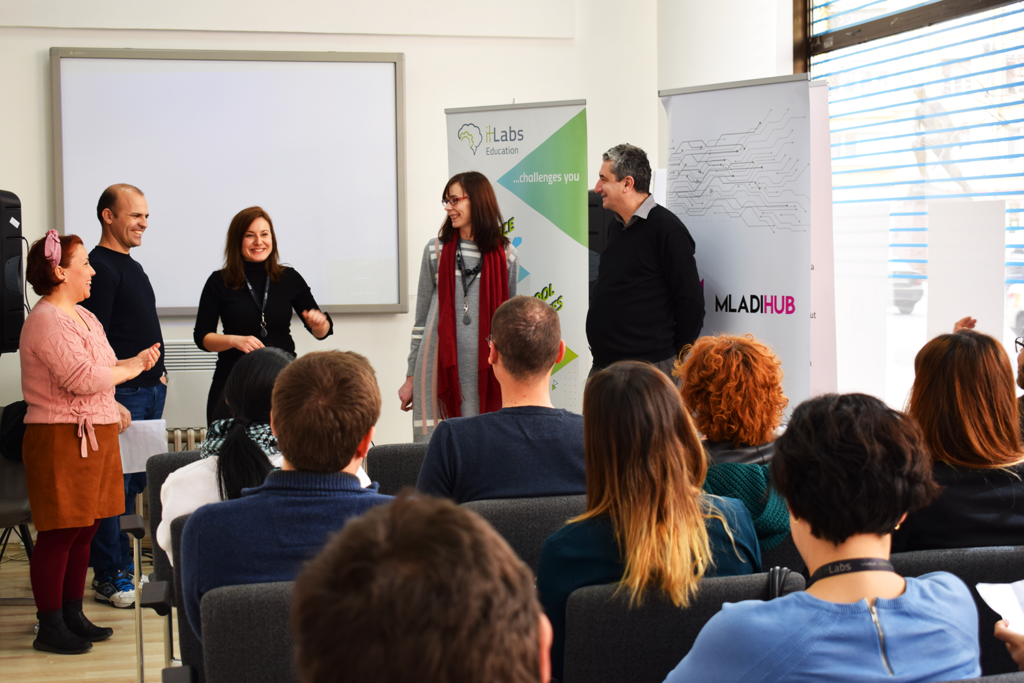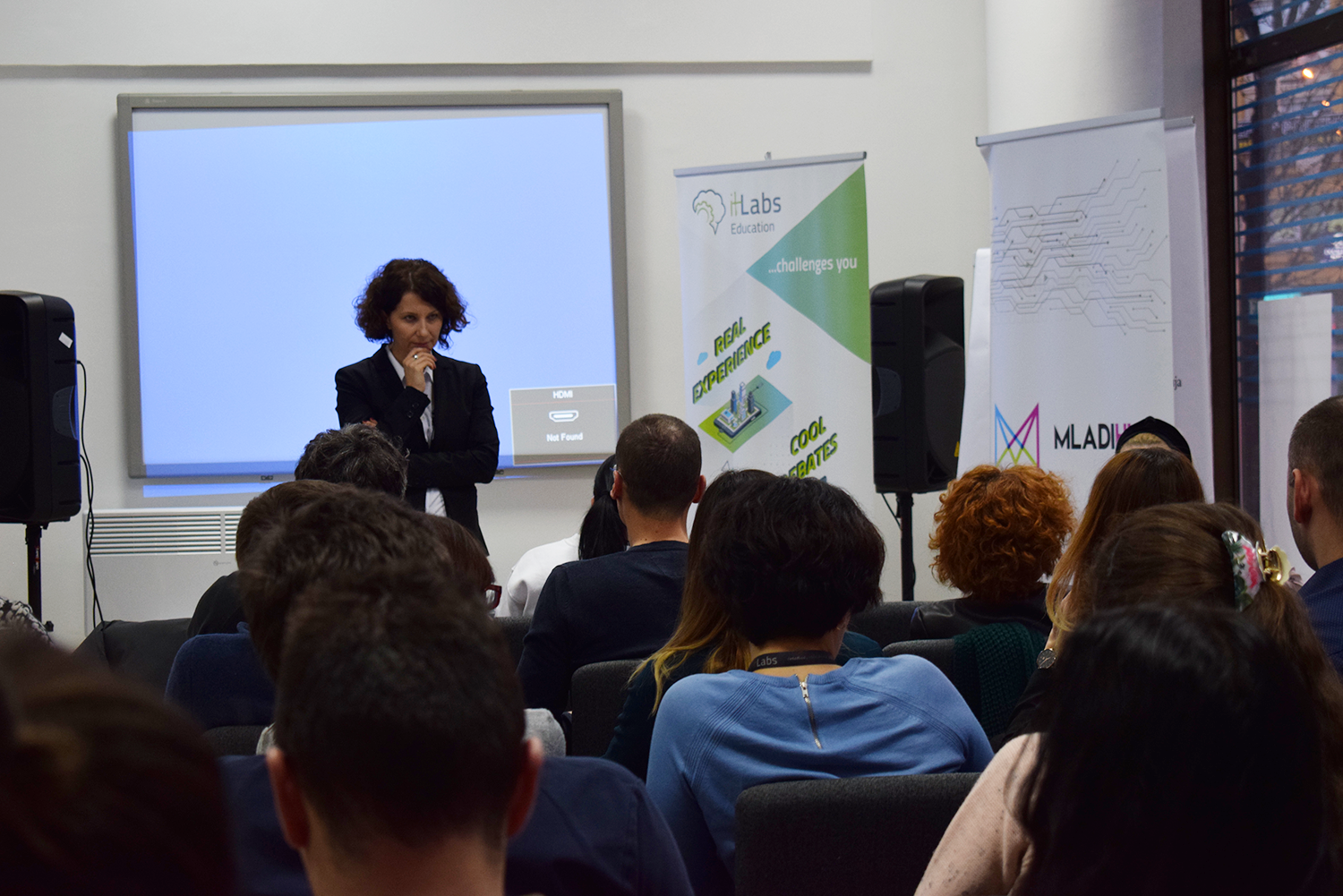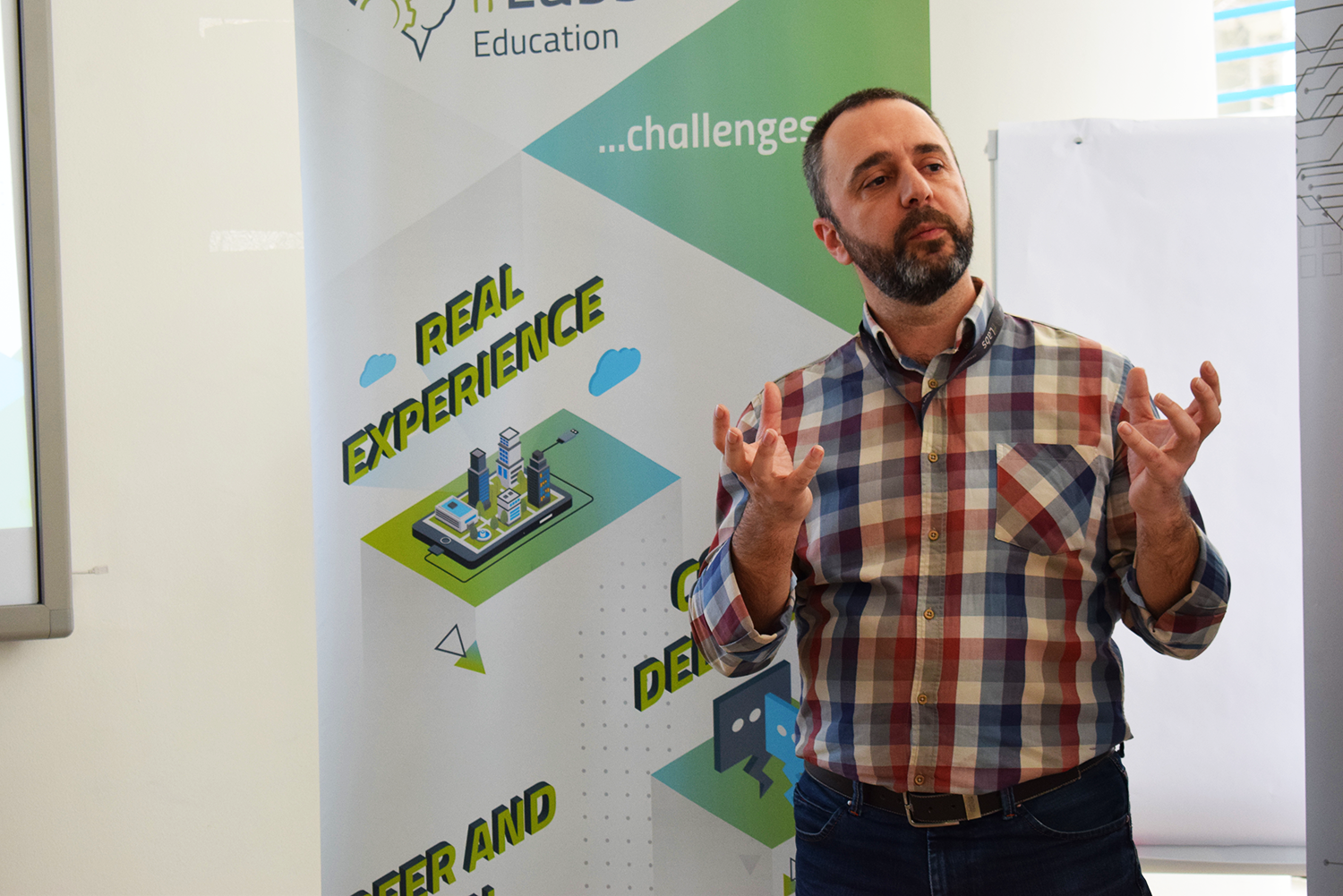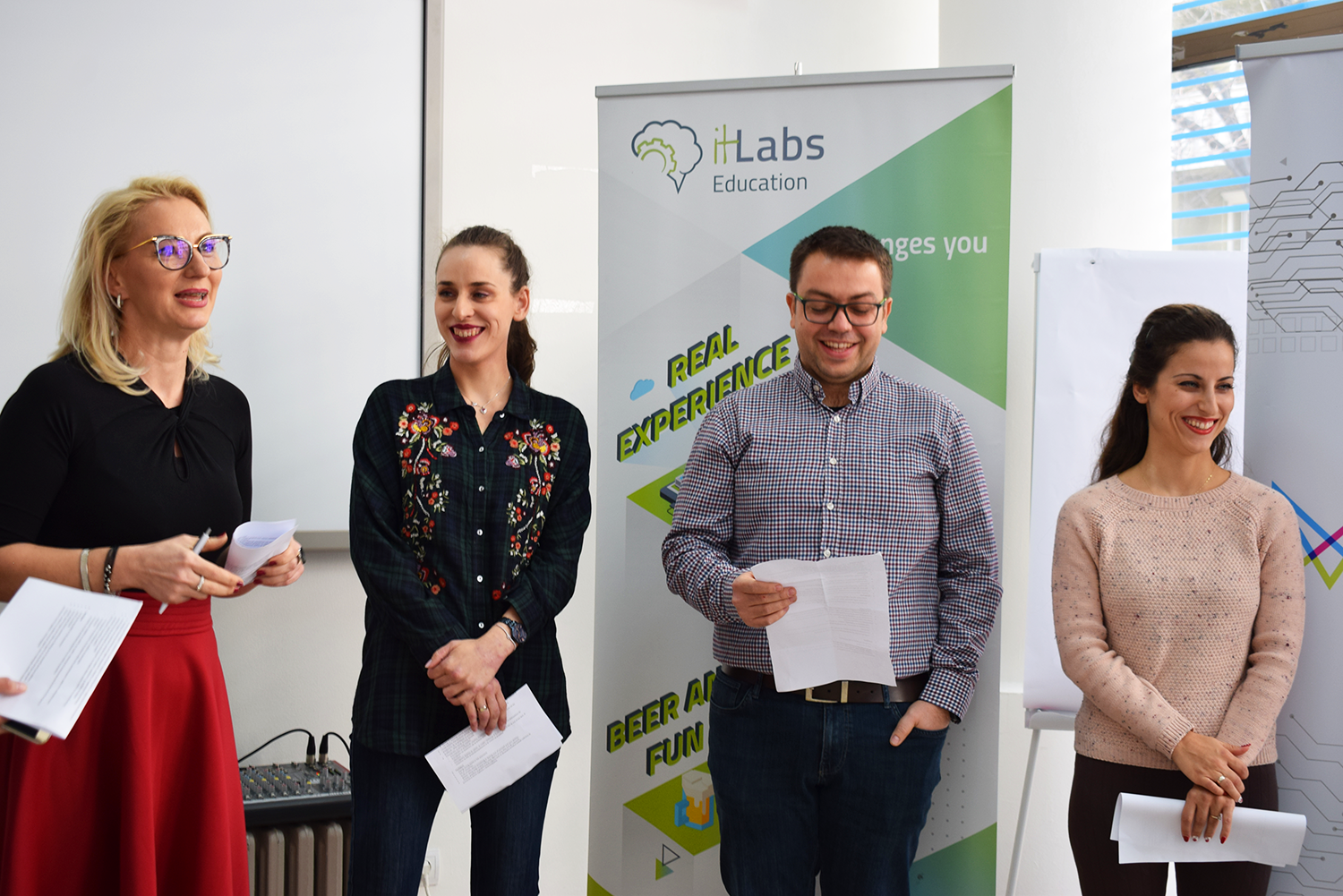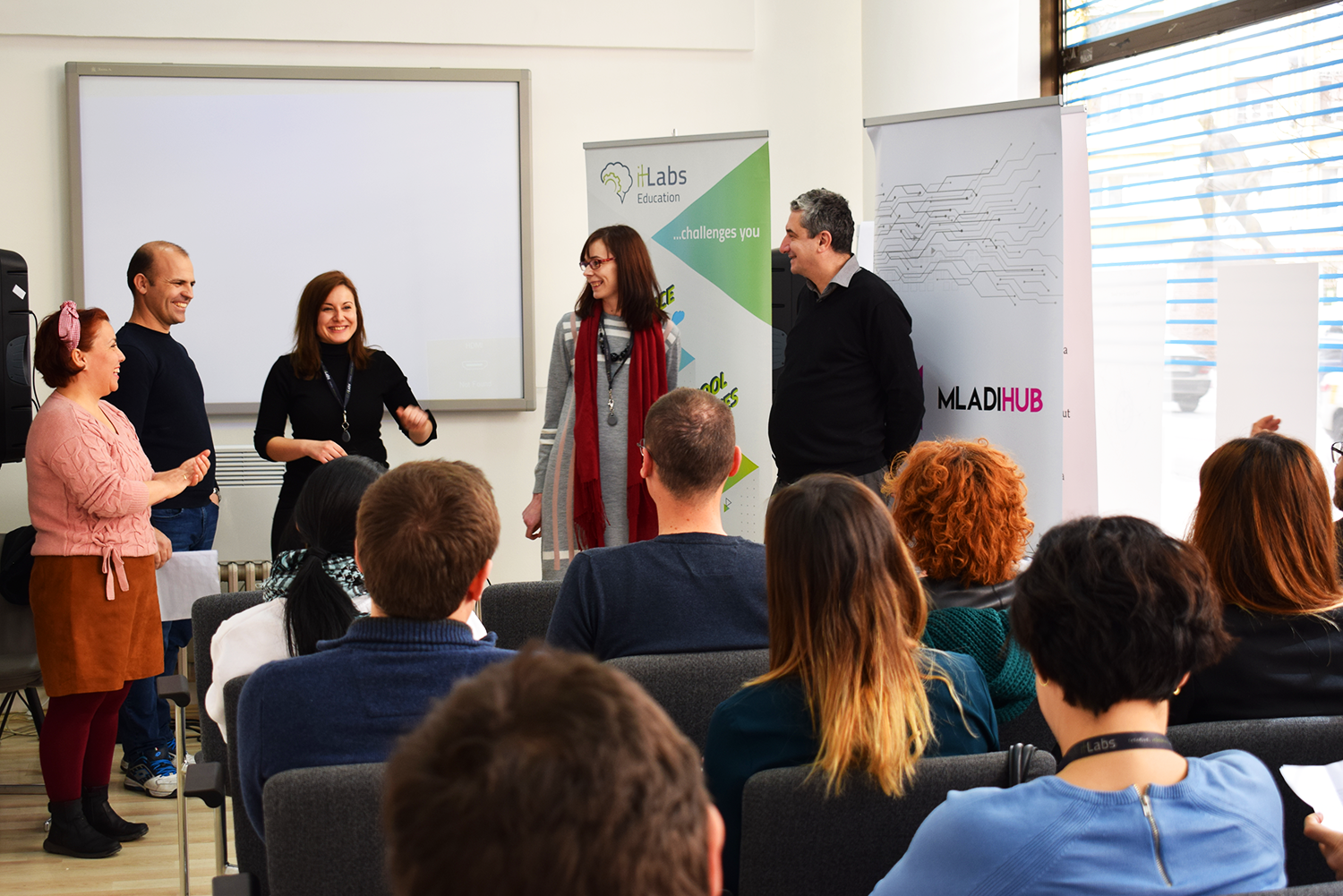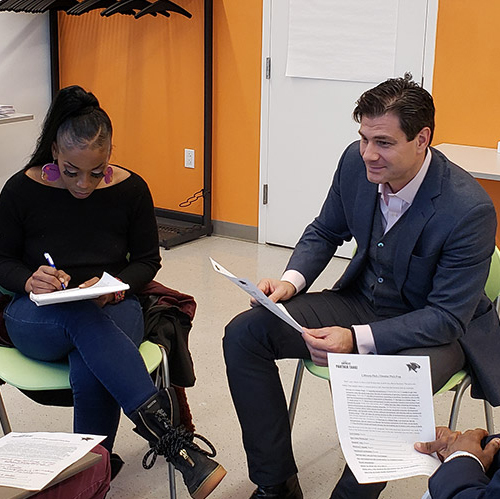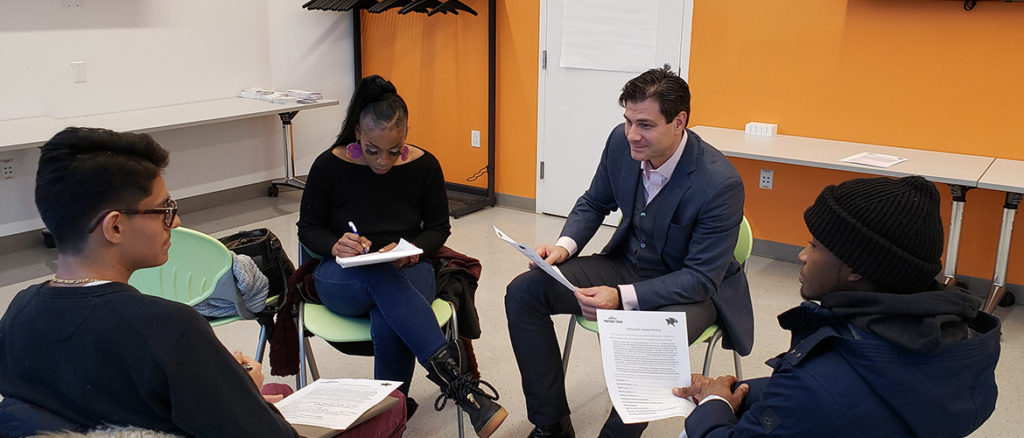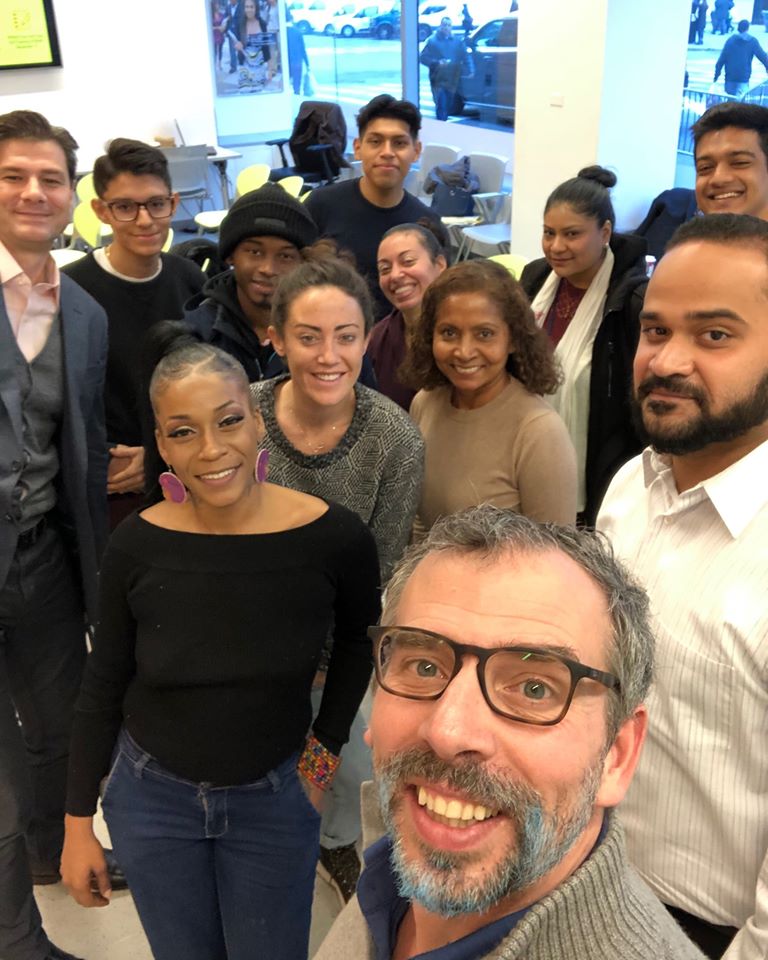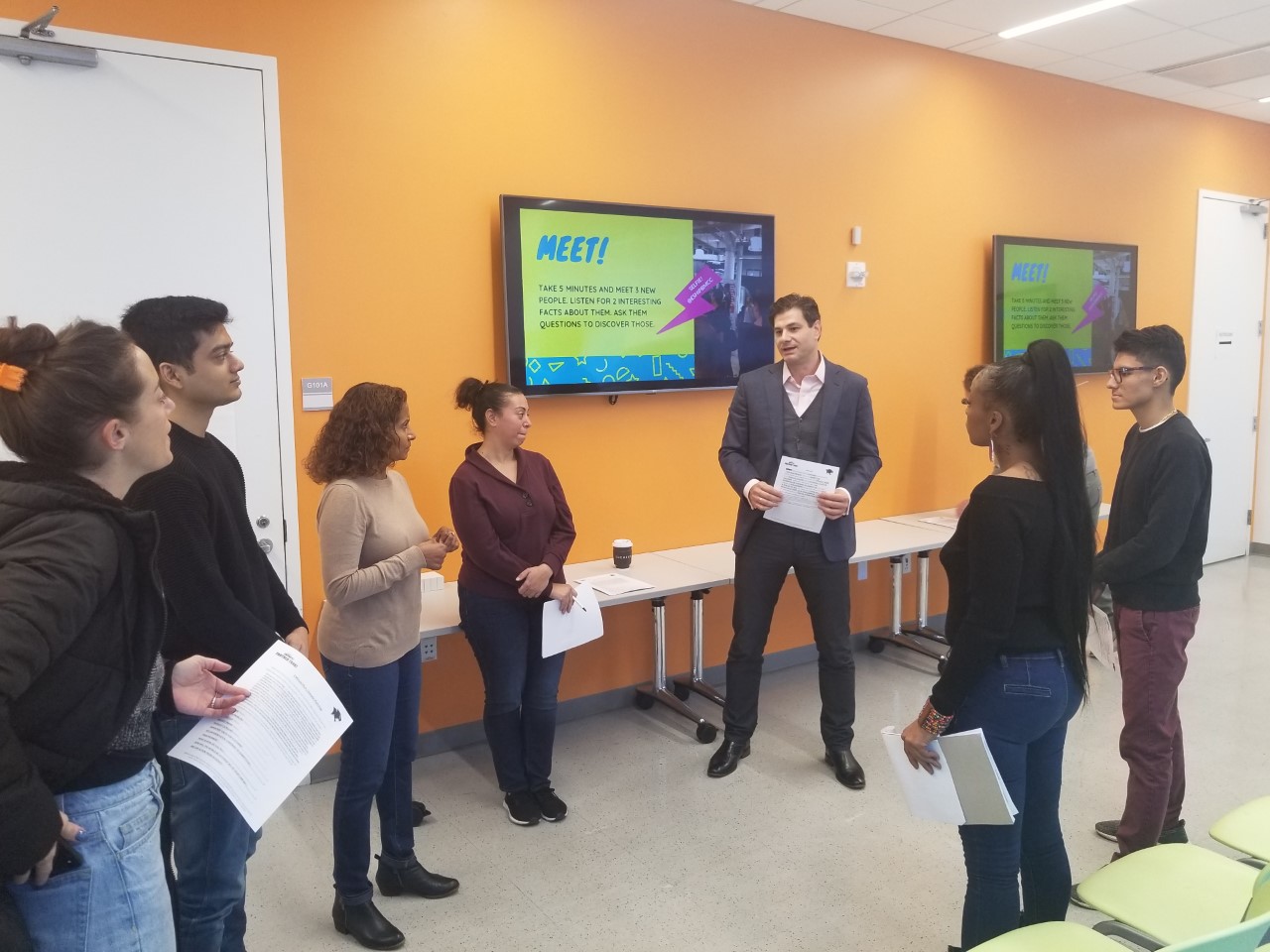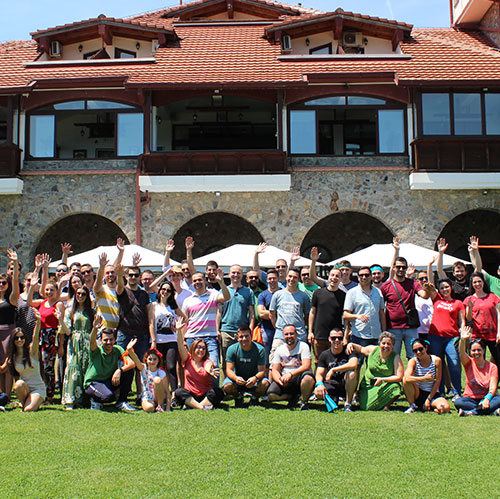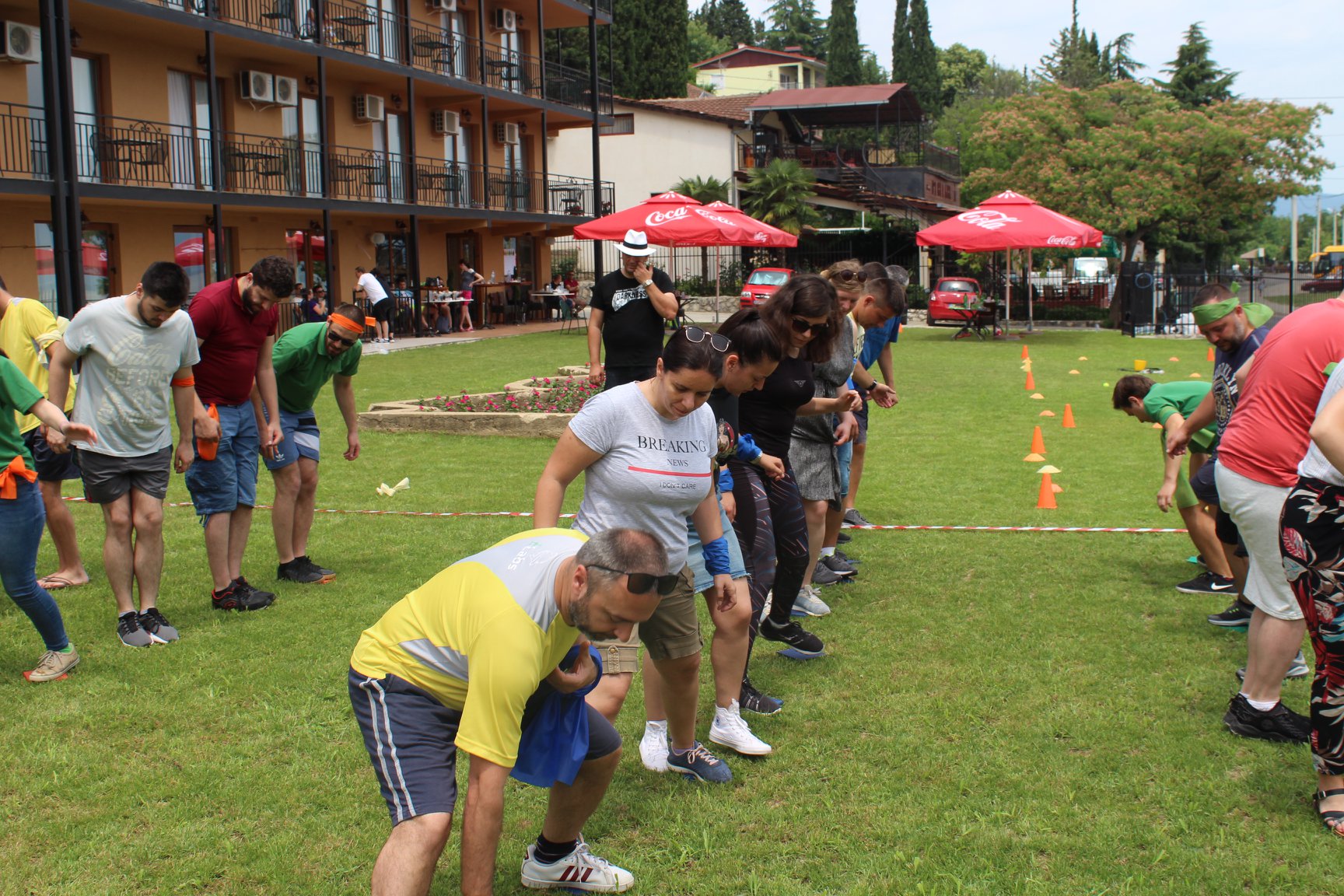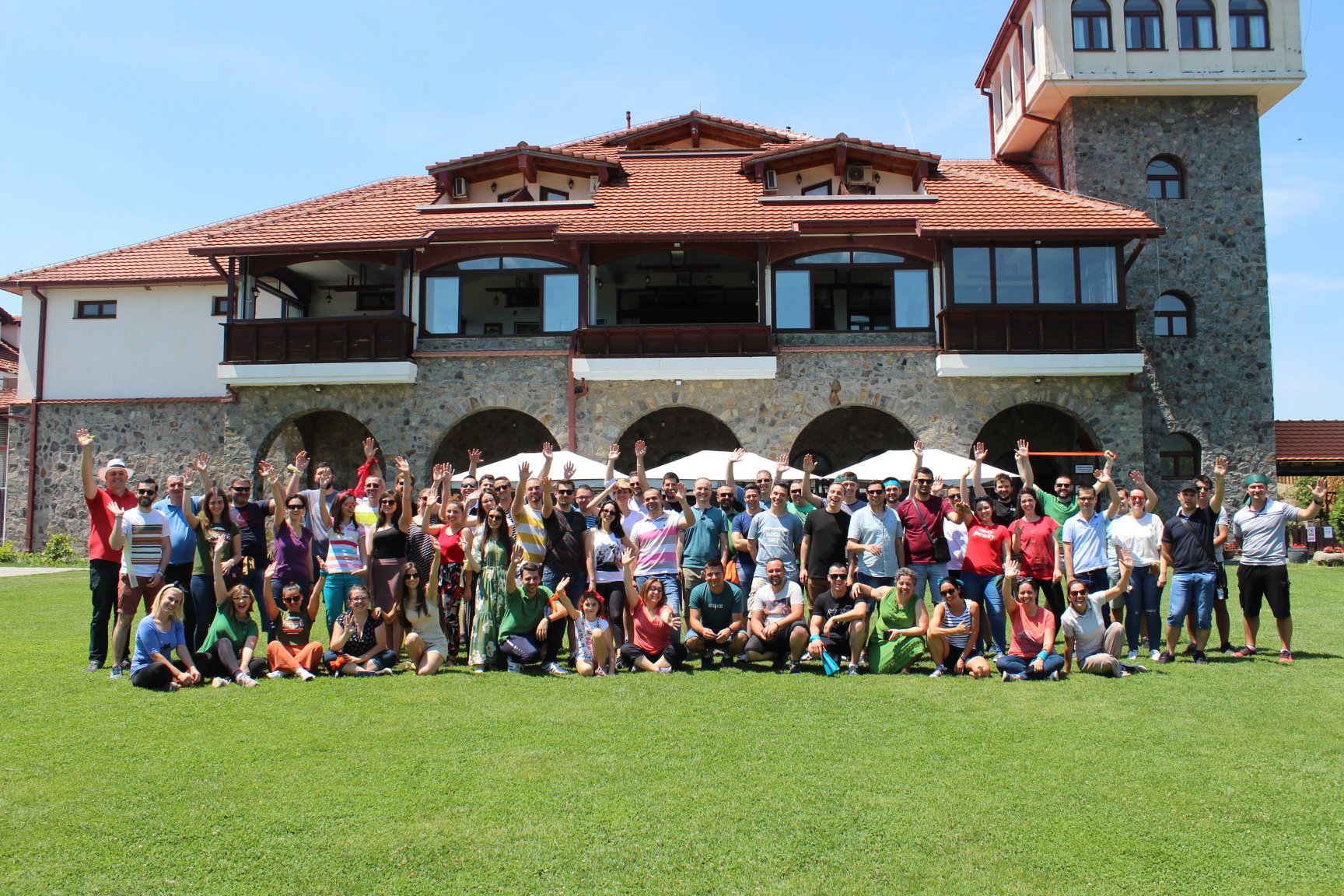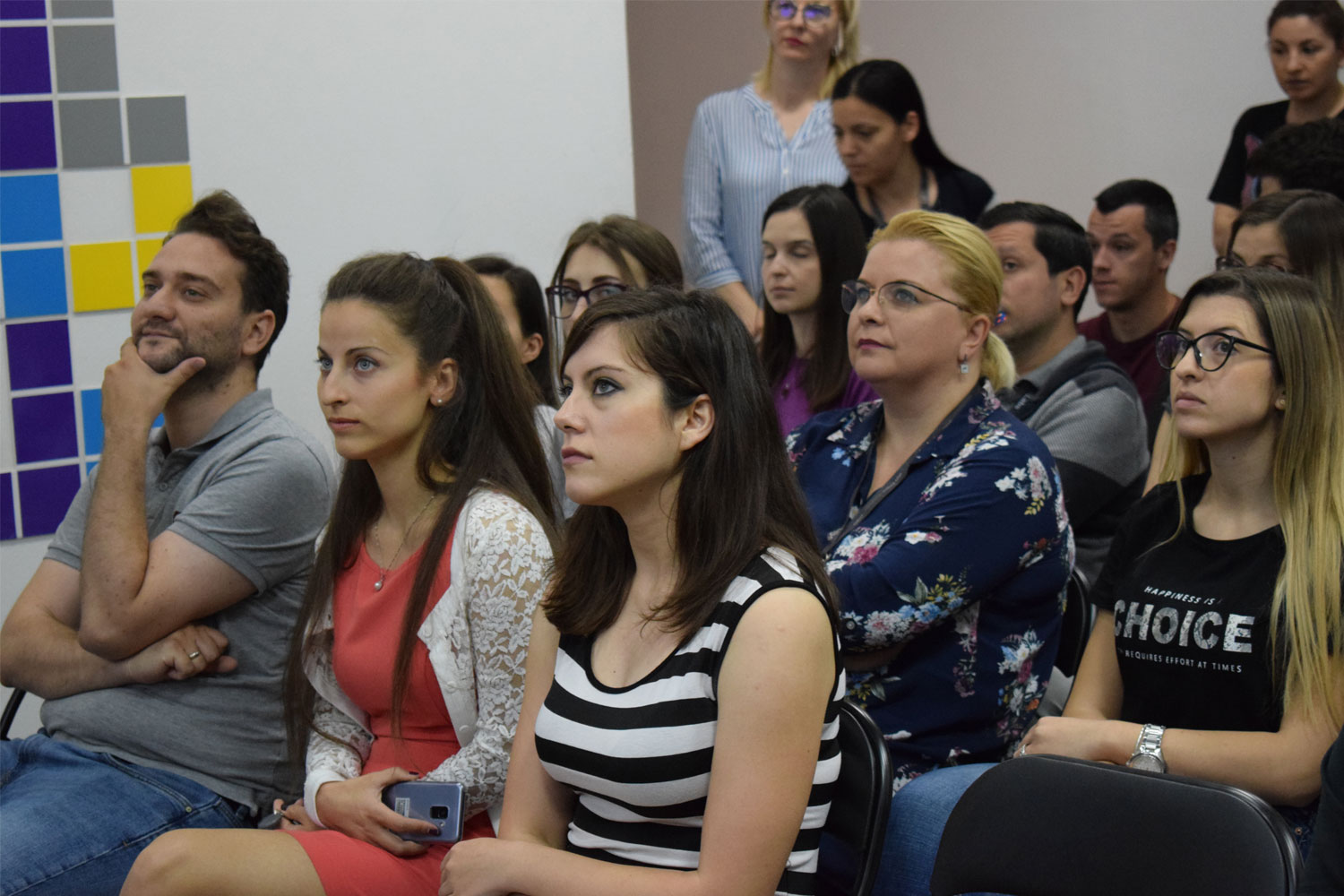How to spend your time and have fun during quarantine?
During the situation with the COVID-19 pandemic, companies worldwide are implementing work-from-home policies to protect the health of their employees. Software industry companies are often familiar with the work-from-home benefit, but in the long term, it's going to be challenging for everyone.
You can find many articles with useful tips and tricks to increase your productivity and effectiveness while working from home. Still, there is one crucial element that shouldn't be forgotten - entertainment.
We are spending most of our time at home, and while the world is in self-isolation, our activities for having fun are limited. The fact that we are going outdoors for the essentials, shopping super-fast in the market, or buying supplies at the local pharmacy can be frustrating.
Here are some ideas on how to spend more fun-times with your colleagues and family.
HAVE SOME FUN WITH YOUR COLLEAGUES
Organize a conference call after-work
Missing after-work parties with the colleagues? Organize one. Buy yourself a drink and invite your colleagues to do the same. Chatting with someone who is not a family member can be a luxury these days, so treat yourself!
Play online multiplayer games
- Ludo King
A well-known board-game. You can play it on Facebook, or download the app on your smart Android or iOS device. You can add up to 6 players to each "game room" and chat with your colleagues while playing - Little Big Snake
Warning! This game is so good that it's addictive! You can add friends and play together as a team!
Or if you are into "hard-core" gaming, you can play more sophisticated free games. Here is a short list of some great examples of free multiplayer games:
In addition to these free games, you can always find discounted games, like these.
Play challenges.
Yes, Instagram challenges can be tedious. But, you can create dedicated chat rooms on your company IM platform and play it with selected colleagues. For example, you can make a 10-days-song-challenge where you can post your favorite songs (e.g. Day 1: Song that contains the word "home" in the title; Day 2: Song that makes me happy). You can go a step further and relate it to a current situation in the news or in work-life.
HAVE SOME FUN WITH YOUR FAMILY
Play couch multiplayer games
Most of them are not free to play, but they are well all worth the money.
- Overcooked
Super-fun cooking simulation game. It does not require any special skills. Just be focused and ready to laugh. - Worms
Turn-based strategy game. Each player controls a team of worms. During the game, players take turns selecting one of their worms, then use whatever tools and weapons are available to attack and kill the opponents' worms. The last worm standing wins the game. - Drawful 2
Like drawing, but awful. The game challenges players to draw weird, funny, and often ridiculous items from prompts on their smartphones and tablets. It requires at least three players.
Or just Google some other games and play something of your choice.
DIY arts and crafts
There are thousands of ideas on Pinterest. You can dye your old white t-shirts with natural beet's color, make a stool for your balcony from recycled plastic bottles or even re-paint your old desk.
Play board games
Before playing, set a ground-rule. Something like "The player who loses should wash the dishes".
Movie night
Make popcorn or other snacks, turn off the lights, set the volume up, and enjoy. You can also make a movie club with your co-workers so you can share ideas about what to watch and collectively review the movie together the next morning.
Stay safe!
Ana Georgieva
Recruiter at IT Labs
How can managed cloud services help your digital transformation?
Nowadays, if you use managed cloud services to simply manage basic configuration and maintenance tasks, it means missing out on the greatest value that cloud services can offer. Contemporary Managed Services Providers (MSP) don’t only perform tasks that IT departments would normally do, but rather act as drivers to digital transformation and as advisors that enable customers’ success.
Each client has different business goals, parameters, and objectives that require a specific cloud solution. An MSP should work closely with their customers to design an optimal cloud solution and help them prepare for effective migration and implementation, embracing agility and flexibility from the beginning to ensure it is quick and seamless. The consultancy should be highly personalized and adjusted to the customer’s specific demands in order to meet their expectations and tackle their challenges. A cloud migration and integration will ideally be focused on the services that will make an immediate difference to business consumers first and tackle the more complex or supporting services later. With this approach, the client gets premium support while creating a sustainable company IT strategy, risk analysis, platform identification, and cloud-enabled app architecture, determining a total IT cost, and integrating with bespoke and/or on-premise applications, etc. As a result, the client will be able to efficiently evaluate what applications within the on-premises data centers can be replaced with SaaS (Software as a Service), refactored, or rebuilt.
Gartner estimates that by 2022, 90% of the corporate strategies will mention information as a critical enterprise asset, and analytics as an essential competency. Creating a selling strategy based on analyzing customers’ social behavior is one of the best examples of using big data. However, there are endless opportunities for the utilization of data analytics, and they can vary depending on the business needs and the area of technology. For example, applying predictive maintenance in production and manufacturing could increase quality significantly.
Data and analytics (D&A) are the key enablers of digitalization, transformation, and continuous improvement in digital business and society. As a result, data analytics providers will have a huge impact on customers’ corporate strategy and value, change management, and performance. In order to be effective, a good understanding of both the data sources and data quality is an essential prerequisite. Once understood, the most appropriate analysis methods can be defined and created, incorporating continuous intelligence and using real-time data from different sources such as transactions, media, various logs, and sensors. Converting this wealth of unstructured data into usable reports and dashboards offers endless opportunities for improved processes and business decisions.
IT Labs as a Managed Services Provider can offer its expertise in creating a strategic IT approach to resolve specific business challenges that a client might face. We proactively work with our clients to identify the opportunities where big data and data analytics can create tangible business value, and we offer support to implement either market services or custom-built analytics solutions.
IT Labs goes beyond providing services that include automation, efficiency, optimization, and control. We want to inspire and implement agility, innovation, and scalability to create an environment in which clients’ IT team can focus on strategic initiatives within their industry.
Sustaining mental health during COVID-19
In the past few weeks, we have witnessed a coronavirus (COVID-19) epidemic and a serious shock to health systems across the globe. Although a certain level of anxiety is quite normal under these extraordinary circumstances, it is important to us, as well as to our community, that we stabilize ourselves and channel our anxiety into precautions for our own and others’ safety. With that in mind, we look at some of the psychological effects that can occur as a result of the current pandemic, as well as certain measures that we as individuals can take to preserve our mental health and that of colleagues, friends, and family.
One of the major differences between our experiences of seasonal influenza and coronavirus is that we perceive the first as a virus we generally know well. We know seasonal influenza’s diagnostic criteria and symptoms, how it is transmitted, how to treat it, to whom to turn, and what to expect.
On the other hand, we currently see the coronavirus as something unknown and threatening, which contributes to a feeling of unpredictability about the whole situation, accompanied by feelings of anxiety, fear, increased alertness, and tension.
- Social distancing is lessened interaction between people, a restriction on the closeness and frequency of personal contact, with recommendations of 1-2 meters minimum distance between people.
- Quarantine involves the physical separation and restriction of movement for people who are well but may have been exposed to a communicable disease (ex. coronavirus), to see if they will become ill. Such separation is continued until medical staff ensures that those people have not developed symptoms of the disease.
- Isolation is the physical separation of people who have the virus from those who do not. This usually takes place in a health care facility or your own home (self-isolation), as appropriate.
- It should be noted that “isolation” and “quarantine”, especially “self-isolation” and “self-quarantine” have been used heavily by authorities and the press, not always specifically referring to the potentially ill and confirmed ill, but as a preventative action the general public should take to help stop the spread of the disease.
- The whole situation with coronavirus is a great and unwanted change for all of us. Very often, this provokes a reaction that goes to two extremes in people. One extreme is overestimation or a so-called disaster when the interpretation of reality goes to worst-case scenarios and outcomes. The other extreme is an underestimation, being indifferent to what is happening and doing absolutely nothing, even engaging in risky behavior unsuitable for the circumstances.From a psychological point of view, when these significant changes occur, there are several stages through which each person goes: Denial, Anger, Depression, Bargaining, and Acceptance. For some these stages are slower, for some faster, until they reach a final acceptance of the current situation, which results in taking appropriate measures.Be patient and understanding towards yourself and your loved ones, who are also somewhere in the process.
Every unwanted change causes stress to lesser and greater degrees, which different types of people manifest and deal with differently. It is also important to note that there are two types of stressors on people as a result of this newly emerging situation with the coronavirus and all the related events. One such stress is associated with the uncertainty of the situation itself – how long will it last? What will happen? What are the consequences, and can it be repeated? The second stress is related to the situation of isolation itself, which is imposed and undesirable. Although isolation is initially perceived as a measure of protection, if it is for a prolonged period, it causes significant stress. The first stress is short-term stress, and it’s much more intense than the second, which can cause mental health consequences after awhile. After all, people are social beings, and isolation from others can be a real punishment.
It is important to be aware that people can manifest stress in different ways, and their symptoms can be reflected in the emotional, cognitive, conative or behavioral realm, ranging from overwhelming agitation to significant withdrawal and isolation in every sense.
Below are four strategies that are recommended to reduce the effects of stress and/or prevent mental illness during the COVID-19 pandemic.
Identify your stress
What are your internal alarm bells? Low tolerance, headaches, stomach pains, or a combination of the stress symptoms listed above?
Even if you notice these symptoms, it’s tempting to think that you can manage them by brushing them under the rug. If you have been noticing these symptoms since you learned about coronavirus, it is possible that you may be experiencing a normal stress response.Start managing the things that are under your control
There are many things in life we can’t control. But, of course, we can control our reactions to all the things beyond our control.
It is important to manage what you can with the information provided, but also very important to release the need to control the uncontrollable.Know your limits
Your limits may vary based on who you are, how you handle stress, and the level of stress you are experiencing. It may be difficult to set the boundaries you need, however, creating these limitations is a helpful tactic to reduce the amount of stress you let into your life.
Whether in your personal or professional life, taking on more than you can handle is a surefire recipe for stress. Distinguish between the “should” and the “must”, and when possible, say “no” to taking on too much.
Practice self-care
Self-care is the active process of acknowledging and tending to your needs. Self-care includes practices that invest in your general wellness. Find what helps and works for you, including with whom talking has a healing and calming effect, and who is your source to vent negative energy.
In a professional context, in terms of both caring for employees and taking action to alleviate the overall situation, there are also activities that can make a difference, and are part of our response plan at IT Labs in this situation. These are small but important things, especially if our professional role involves managing and leading people. This is also a time when people more than usual strive to strike a balance between private and professional life. Besides all the media information, employees face another major challenge to keeping their productivity up as family members, especially children, are also at home, expecting attention, an active presence, and other family needs being attended to.
Coronavirus: IT Labs advice for employers and employees:
- Have a plan. Let employees know that you are thinking and looking ahead, that you will stay well-informed, and that you can answer the questions they already have: What if I get sick? How do I take time off work? What if one of my family members contracts the virus? You may want to compile frequently asked questions and direct employees to them often.
- Communicate, share, and be open. Worry and fear grow in the absence of up-to-date information. Let your employees know that they can expect regular updates from you. Communicate even if the situation remains unchanged.
- Empathize. Share that you know it’s stressful. Recognize that it’s okay to be anxious. Remind your employees of resources that are available for those who are experiencing stress.
- Understand. Recognize when stress has become unmanageable for individual employees. Stress can lead to anxiety and even panic. Some employees may need mental health days and medical intervention to cope. Encourage employees to practice self-care activities on-the-job and reassure them that it’s ok to take steps to manage stress, such as relaxation exercises, listening to relaxing music, or taking regular breaks.
- Here are some tips that all of you who lead people or teams can use to proactively give advice. This is a time when you need to show people that you are here for them, that you are available, even just to talk to them about how they feel, to show understanding and care.
- Limit the amount of information you consume.
- Focus on the things you can control.
- Take break from work when you feel pressured.
- Encourage video meetings or short breaks with your team.
- It is allowed and ok to show fear.
- Speak about your feelings.
- In the face of intense virtual communication, what do you say about launching a company “virtual coffee” project where the focus will be on wellbeing? I’m convinced the effect will be phenomenal.Of course, throughout this period it is important to be informed, but it is even more important to consider the relevance of the source from which we derive the information. At the same time, it is extremely important that we do not allow our whole day to be consumed by the topic of the virus. Identify a time interval within which you will update yourself on the conditions and the events associated with it, and promise yourself that the rest of the time you will do something else, something more constructive. And yes, this is part of things that are under your control and will at the same time help reduce your stress level and anxiety.Frosina Zafirovska
CHRO at IT Labs
Phd, Licensed Psychologist
Excellence in Performance (Workshop)
Possessing the right soft skills is of great importance when working with clients, and it is something that can always be upgraded and improved. This involves many subtle elements and a personal touch from every one of us. The workshop „Excellence in Performance“ was a great opportunity to elevate our skills and learn one from each other about what gets into creating perfect communication with the client.
Divided into teams, we put together a great conclusion – every one of us contributes in his unique way in the story of IT Labs and we can learn so much through sharing our experience.
Kostandina Zafirovska among leading experts on Prague Gaming Summit 2020
The 4th edition of the Prague Gaming Summit will take place on 6 March and welcomes leading operators, service providers and gambling industry experts from all across Europe. Among them is IT Labs General Manager, Kostandina Zafirovska.
The speakers on Prague Gaming Summit 2020 will share their knowledge on trending topics, among which is the workshop „Strategies that help you concentrate and focus on your business’s core functions”, held by Kostandina.
The attendees of the workshop will have the opportunity to hear about business development, strategies, technology, and much more. Kostandina will share her experience and knowledge accumulated in over nineteen years in varied industries, including insurance, finance, and gaming.
This year Prague Gaming Summit is raising the bar and offers a new format that brings up the possibilities to have more talks, more panels, and speakers. The Summit provides unique opportunities for networking, learning, and sharing knowledge with the leading experts of the industry.
Interview with our CEO Branislav Gjorcevski for Picante
One of our founders and CEO Branislav Gjorcevski sat down with "Picante Today" and talked about his beginnings in the IT Industry, what drives him forward and how he envisions the future of IT Labs.
PICANTE Media: Let’s start with some questions about yourself, Banne. It is great to hear top entrepreneurs talking about themselves. Tell us the highlights of your life and career so far. Our readers would love to hear it.
Branislav (“Banne”) Gjorcevski: That is a great question. ?I think my biggest highlights were all results of my personal transformation, whether I was aware of those transformations at the time or not. Those transformative events take you into the next level of growth and result in a big milestone where opportunity meets the effort, or as people say, “I got lucky”. I was lucky enough to create one of the first online social networks, back in 1999, to help European artists present themselves to the world. That launched my career in online tech. I was lucky enough to start IT Labs in times when Web 2.0 was a big deal in California. I was lucky enough to work with amazing clients that have been with us for over a decade. I’m lucky enough to be surrounded by a team of amazing people that would do anything to help clients’ business. And so on…
PM: You have been a serial entrepreneur, starting from 2005 with IT Labs in 2006. What would be your one advice to the wannabe entrepreneurs?
BG: Be true to yourself about what your strong suits are and, more importantly, what your weak points are. Then find experts in the areas where you lack. Let customers lead the way, not your ‘intuition’. When you become a bigger company, then you can rely on ‘intuitive approaches’. Purpose first, services and product second. Always go the extra mile to help your market…customers will notice that and never leave you. Sleep as much as you need, not less, not more. Start with a healthy mind and spirit. That will give you the foundation for productivity.
To read the complete interview, click here
Team Building 2019
Our team is growing so fast that we even had our own Olympics! Okay, Wine Olympics… Every Olympics are ending with a party and there is no better way to conquer the dance floor as Latin Fiesta.
Synchronized teams are always eager for challenges, so we push the boundaries and challenged ourselves to launch rockets. We thoroughly enjoyed this getaway, we created a lots of memories and grown as a team. So, remember: “Alone we can do so little, together we can do so much.” -Helen Keller
Leadership Talks 4 - Leaders create Leaders
This May our dear colleague Slavjanka Stankovikj had a presentation titled “Leaders create leaders”. There is a quote that says: “Make people feel like the hero of their journey and they will do more.” So, in the session, we learned how to make Our people heroes of their journey.
Long story short, Caci shared with us her knowledge about the importance of employees’ empowerment. Thank you Caci for the excellent presentation!
Stay tuned for our next Leadership talk session…












 Every unwanted change causes stress to lesser and greater degrees, which different types of people manifest and deal with differently. It is also important to note that there are two types of stressors on people as a result of this newly emerging situation with the coronavirus and all the related events. One such stress is associated with the uncertainty of the situation itself – how long will it last? What will happen? What are the consequences, and can it be repeated? The second stress is related to the situation of isolation itself, which is imposed and undesirable. Although isolation is initially perceived as a measure of protection, if it is for a prolonged period, it causes significant stress. The first stress is short-term stress, and it’s much more intense than the second, which can cause mental health consequences after awhile. After all, people are social beings, and isolation from others can be a real punishment.
Every unwanted change causes stress to lesser and greater degrees, which different types of people manifest and deal with differently. It is also important to note that there are two types of stressors on people as a result of this newly emerging situation with the coronavirus and all the related events. One such stress is associated with the uncertainty of the situation itself – how long will it last? What will happen? What are the consequences, and can it be repeated? The second stress is related to the situation of isolation itself, which is imposed and undesirable. Although isolation is initially perceived as a measure of protection, if it is for a prolonged period, it causes significant stress. The first stress is short-term stress, and it’s much more intense than the second, which can cause mental health consequences after awhile. After all, people are social beings, and isolation from others can be a real punishment.



